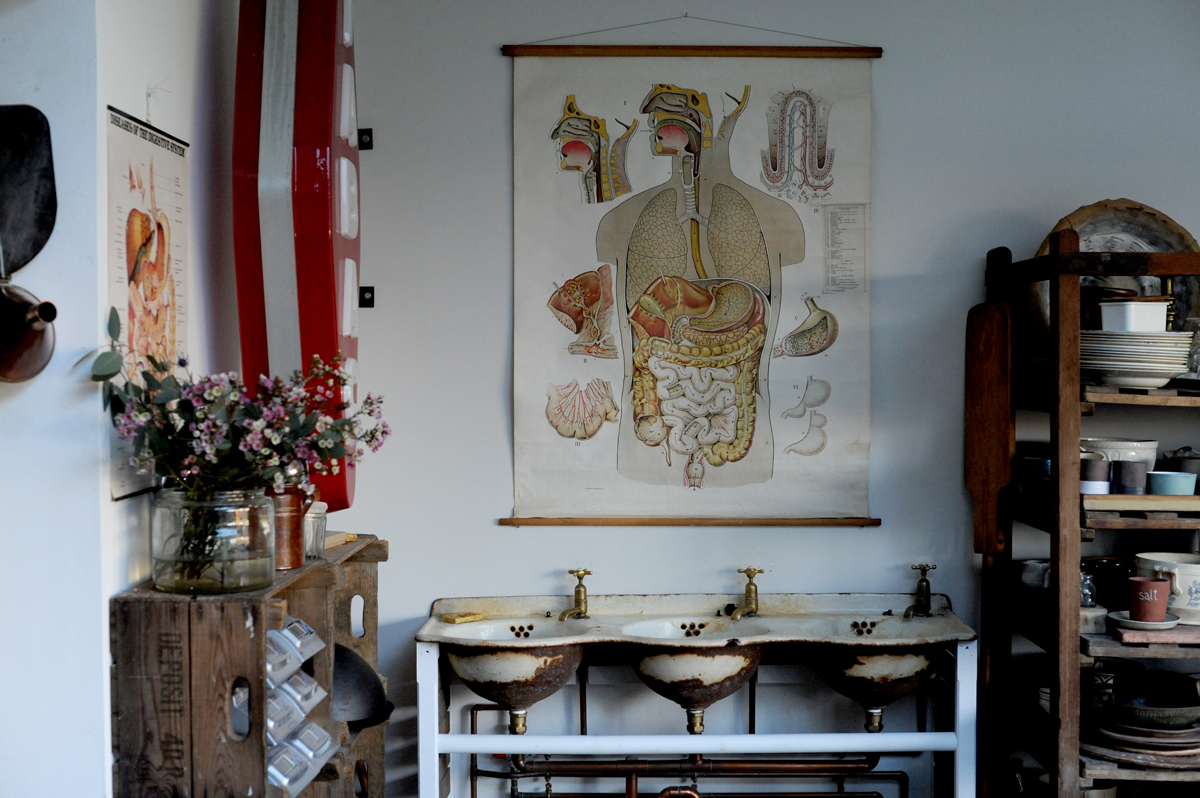
I wrote a feature recently on polyphenols and sourdough. The evidence suggests that the long slow fermentation increases bioavailability of these beneficial antioxidants .. which in turn is good for our gut microbes, and protecting against a range of diseases.. but it got me thinking about the other benefits of long slow fermentation in relation to our gut microbiome, and I thought it might be a good idea to summarise the main points. Although large-scale clinical trials on the effects of sourdough baked products on health and nutrition in humans are limited, the information so far still seems valuable. Examples include, fermentation and acid production by lactic acid bacteria and yeast have been shown to bring about improved mineral and polyphenol bioavailability – especially in those made with wholegrain flour. Sourdough baking is also consistently shown to deliver breads with higher levels of resistant starches and the lactic acid bacteria fermentation increasing the overall fibre content of sourdough breads. Sourdough can help increase your dietary fibre intake by 10-15% and the ratio of soluble to insoluble fibre can be manipulated depending on how long you ferment your dough. Recent advances in the area of gut health has shown that phenolic compounds { LINK } in addition to fibre has been shown to improve gut microbial diversity which is pivotal in maintaining a healthy gut microbiome.
In addition to polyphenols, ( a source of food for our gut microbes) sourdough breads made with wholemeal flour also provide fibre which is beneficial in prevention and management of constipation and is of importance in the management of other large-intestinal diseases such as irritable bowel syndrome and bowel cancer. There is over 50 years of research documenting how fibre consumption has been linked to body weight reduction and maintenance, and there is a mountain of evidence that supports the fact that getting enough dietary fibre helps contribute to reduced risk of an array of diseases including type 2 diabetes.
In sourdough however there is another level of benefit as the dough ferments. The lactic acid bacteria produce extracellular polysaccharides called exopolysaccharides, which could also act as a source of fibre for our gut microbiota.
I think it is fair to say that, the collective evidence from the studies showing increased levels of fibre and levels increased bioavailability of polyphenols, contributes to supporting our gut microbiome.




 A Summary of the Vitamins and Minerals in Malted Wholegrain Flour
A Summary of the Vitamins and Minerals in Malted Wholegrain Flour 